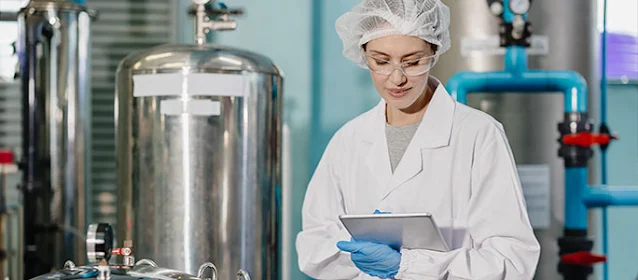Ensuring GMP Compliance through Effective QMS in Pharmaceutical Manufacturing
 |
Good Manufacturing Practices (GMP) are regulatory guidelines designed to ensure that products are consistently produced and controlled to meet quality standards. These practices minimize risks of contamination, errors, and mix-ups, and revolve around quality management, personnel training, facility and equipment maintenance, thorough documentation, production controls, and handling customer complaints and recalls. GMP is crucial in industries such as pharmaceuticals, food, cosmetics, and medical devices to ensure product safety and effectiveness.
For e.g.: Sterile pharmaceuticals demand stricter standards beyond basic pharma GMP to guarantee they are entirely free from microorganisms. This involves enhanced cleanliness protocols, advanced sterilization techniques, and meticulous handling to eliminate any risk of contamination.
GMP Regulations are pretty much important, as they help to –
• Control Processes: Documenting systematic procedures ensures the uniformity and high quality of drugs, medicines, vials, or injections. • Prevent Adulteration: Testing and recording deviations safeguard product integrity. • Cut Costs: Preventing contamination and deviations reduces rework and unnecessary expenses. • Boost Customer Satisfaction: Meeting quality standards enhances trust. • Drive Improvement: Recording complaints and resolving them refines the complaint management process. • Enhance Knowledge: Effective training improves employees' knowledge and adherence to procedures.
In recent years, pharmaceutical companies are moving away from traditional spreadsheets and disparate systems and acquiring an electronic Quality Management Systems (eQMS) to improve the management of GMP activities and streamline quality processes.
GMP regulations, like FDA 21 CFR Parts 210, 211, and 212, EU GMP EudraLex Volume 4, and ICH guidelines Q7, Q9, and Q10, etc., ensure drug safety, quality, and effective management of processes like deviation handling, personnel training, and change control.
An eQMS software like QualityPro supports GMP compliance by automating document control, managing deviations and CAPA processes, enhancing training, simplifying audit management, and integrating all QMS components for efficient quality management.
QualityPro QMS is tailored to streamline GMP compliance in pharmaceutical manufacturing with the following key features:
By integrating these features, QualityPro QMS helps pharmaceutical manufacturers efficiently maintain GMP compliance, ensuring the production of high-quality, safe, and effective products. If you want to ensure GMP compliance in your quality process, choose QualityPro QMS Software for Pharmaceutical Industry. |








